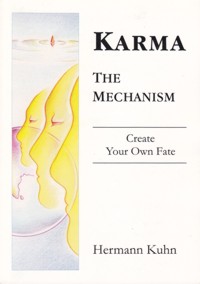The above differs significantly from the conventional interpretation of the Five Freedoms. According to traditional understanding the Five Freedoms are:
- To be free from killing or hurting living beings - directly or indirectly.
- To be free from falsehood, deception and dishonesty.
- To be free from taking what is not given voluntarily.
- To be free from the inner compulsion that allows sexual needs to govern our life.
- To be free from the attachment to material possessions.
The Five Freedoms are usually interpreted as 'vows'. Many followers of the traditional view believe that everyone who formally accepts these vows proceeds directly and automatically from the first to the fifth stage of development (gunasthana). However, this general understanding does not correspond with the mechanism of the 14 gunasthanas as the ancient scriptures describe it. It rather indicates that much of the basic comprehension of this dynamic method of development has been lost - irrespective of how widely the erroneous understanding may be believed in.
A mere formal acceptance of these vows can never cause the transfer to a higher stage of comprehension and development. Certainly - taking the vows can mark an initial point from where growth in this direction may start, but higher stages of development will only unfold when we remove the karma that blocks our perception of these stages.
Unfortunately the flawed conventional interpretation leads to much pointless world-renunciation, self-punishment and intense ascetic behavior.
The Five Freedoms are a method of dynamic growth that has nothing to do with sacrifice, self-denial or renunciation of the world. On the contrary - feelings of remorse, self-punishment, mortification etc., (which are often associated with sacrifice and renunciation) not only hamper our path to freedom from karma, but may block it altogether. Self-denial, remorse etc. only indicate a negative bond to the objects and situations denied and not a fundamental freedom from them. As hate is just proof of a highly emotional attachment to the hated person - only in a negative way - so also remorse, self-denial etc. only indicates a negative bond to the resented objects, it does not produce freedom or detachment from them. As long as any object we want to be free from still plays a role in our life, we are not free from it.
Furthermore - any kind of self-denial or remorse always orients towards past experiences. It forever looks back to atone for deeds, emotions or thoughts gone by. It never inspires dynamic impulses towards future progress. But as long as we only strive for a freedom from something rather than aspiring a freedom to do something, we have not found true freedom yet.
The Five Freedoms are never directed towards the sacrifice of elements of life, but always towards attaining new, more fascinating and broader dimensions of experience. We are reaching this new state because it attracts us more than the old one. That the old state becomes obsolete in this process and falls away, is a side-effect, not the main aim. One example: When we switch from a radio station with 'boring' music to one with a more interesting program, we would never regard this switch as 'sacrificing the boring music', but rather as a nice change for the better.
When we realize the lines of actions the Five Freedoms point out, we waste no energy on any attempt to abolish old conditions, but instead concentrate on the experience of new and more attractive levels of life. The shedding of old conditions and behavior patterns consequently happens automatically, without any forcing.
In the original Sanskrit the Five Freedoms are also called sanyama which translates as 'control' or 'steering'. The conscious steering of our life along the five lines of action described at the beginning of this chapter is the real mechanism that triggers the experience of higher levels of consciousness.
 Hermann Kuhn
Hermann Kuhn
